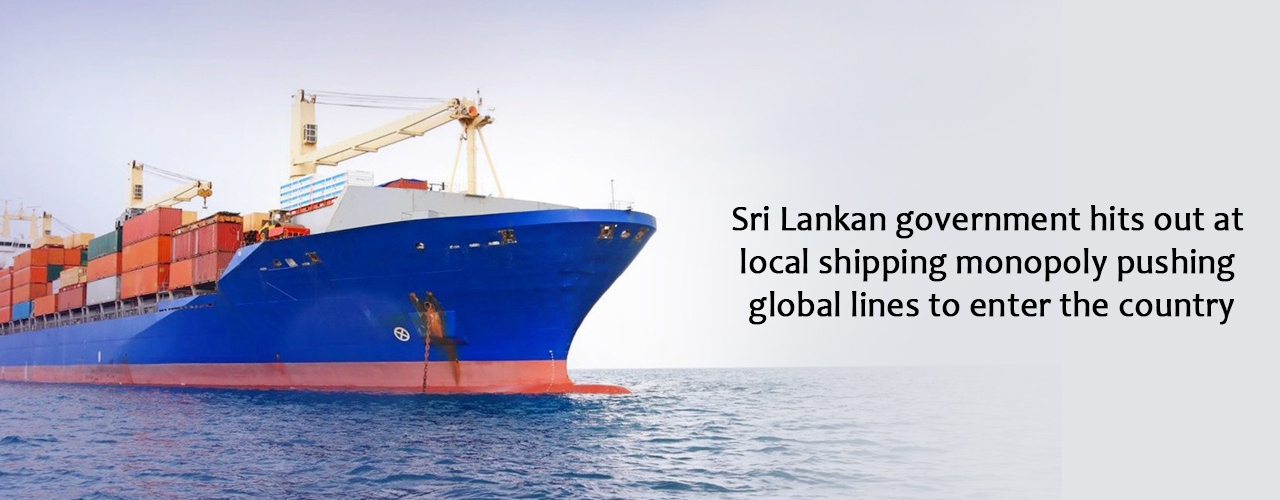Sri Lankan government hits out at local shipping monopoly pushing global lines to enter the country
The government of Sri Lanka has taken a resolute stand against the monopoly of major conglomerates in the local shipping and freight forwarding businesses by removing the equity restrictions on foreign shipping companies to handle the business locally.
The removal of the equity limit on foreign shippers through Budget 2018 proposal would encourage major international shipping lines and logistics operators to base their operations in Sri Lanka.
The monopoly of held by a few local shipping companies can control the freight rates and pressurise the Sri Lanka Port Authority (SLPA) to reduce tariff rates in order to benefit their interest, a senior government official has been quoted as saying in the media. He has been further quoted as saying that those firms could dictate freight rates to the exporters of Sri Lanka and prevent competition in the shipping sector.
However, the Ceylon Association of Shipping Agents (CASA) and Sri Lanka Logistics and the Freight Forwarders Association (SLFFA) have vehemently protested against the government’s move claiming that it will not bring in any additional investments or benefits to the country as envisaged.
The existing restriction applies to shipping agency /freight forwarding functions only and not to investments in other facets of the shipping lines/logistics activities, CASA has claimed.
Nevertheless, major shipping lines Maersk, Hanjin, Evergreen and other international shipping lines are keen to establish their branches to make Colombo a hub for their shipping and port-container operations, the official has pointed out emphasising that these companies had been compelled to set up joint-venture partnerships with local shipping agents due to existing limit of 40 per cent foreign equity .
The official has predicted that such companies will definitely increase their stake to 100 per cent from 40 percent under the government’s plan to make a new Colombo’s logistics hub, between the logistic hubs of Singapore and Dubai.
Issuing a statement, Maersk Line, the largest global container shipping line and a market leader in Sri Lanka, welcomed the move of shipping liberalisation stating that the company would engage closely with its valued partners in Sri Lanka and together evaluate options on increasing its footprint in the country.
Another leading international shipping firm Hapag–Lloyd has extended support to the government’s decision to fully open the sector to foreign firms.
Big foreign shipping companies will also bring new technology and new knowledge on logistics and supply chain management while paying high salaries to around 12,000 shipping sector employees including documentation clerks working in 750 local firms, industry sources have been quoted as saying in the Business Times.
The FMC (Federal Maritime Commission) of the US, anti-competitive authority in the European Union, Monopoly and Competition councils and authorities around the world are yet to monitor the monopolistic situation in the local shipping trade and it will definitely endorse the government’s move.
Meanwhile, the Sri Lanka Ports Authority Act (No 51 of 1979) and the Merchant Shipping Act (No 52 of 1971) would be amended to cater to the demands of the modern-day logistics and marine industries; he has pointed out adding that: “This will also ensure healthy competition. An independent ports regulator will be introduced.”
OSL take:
The Sri Lankan government seems resolute in its target of making the island the maritime hub of the Indian Ocean region. The latest proposal by the government to liberalize the local shipping and logistics industry would open up a host of investment opportunities for foreign investors to look at.
| Article Code : | VBS/AT/21112017/Z_4 |

